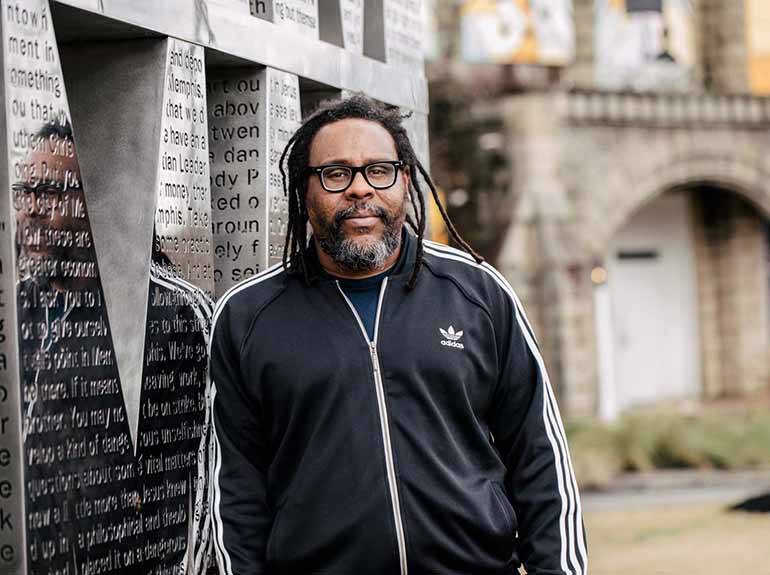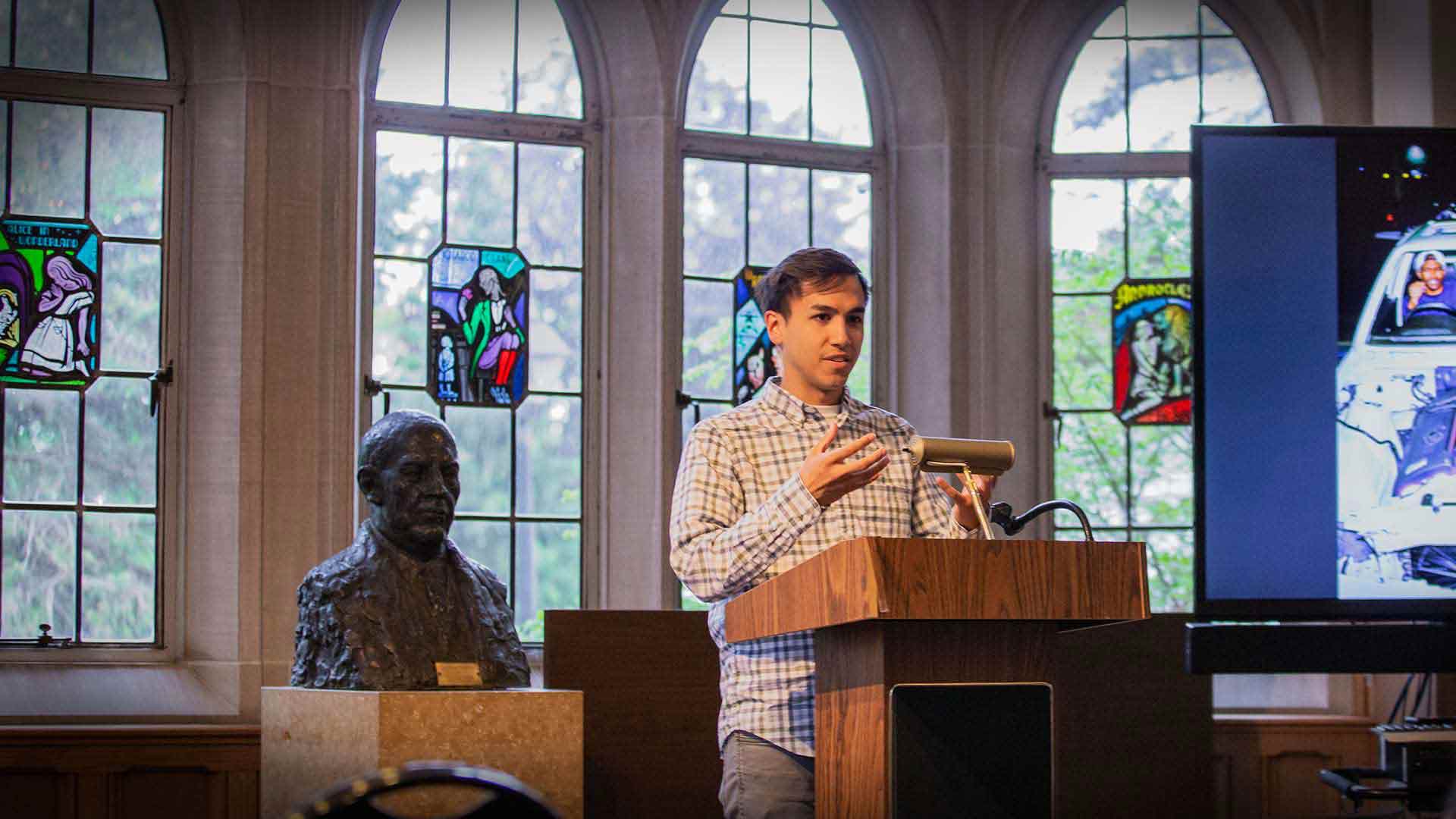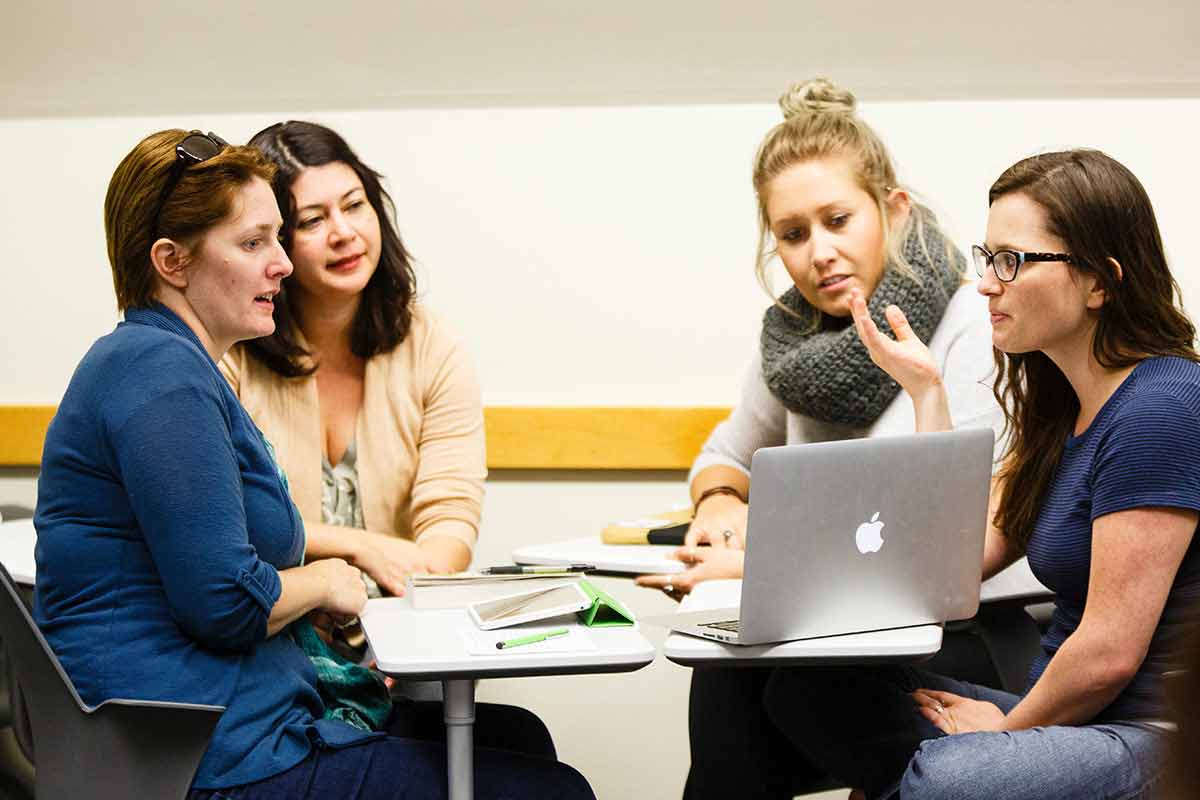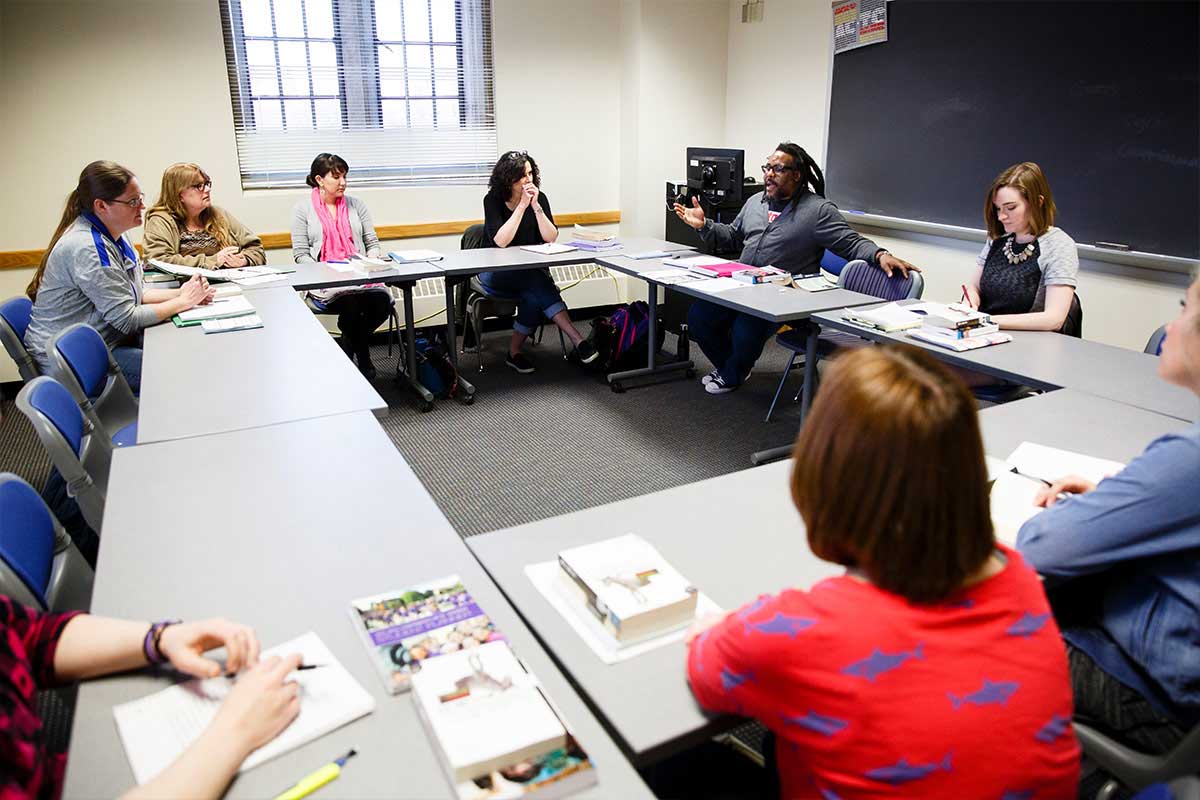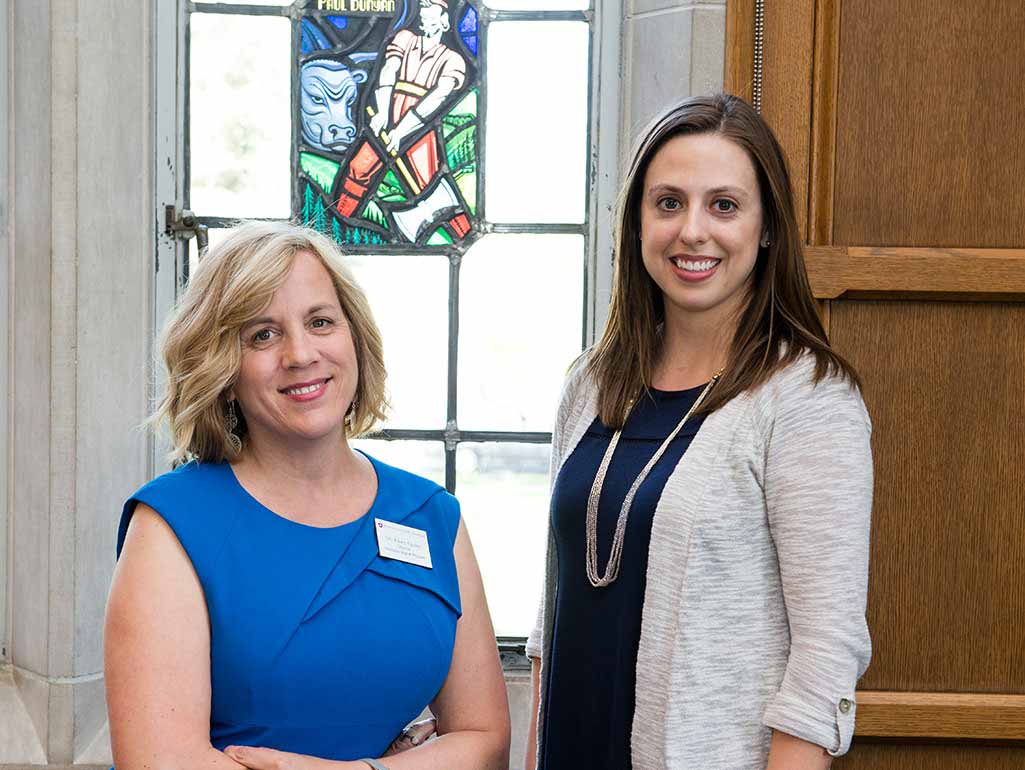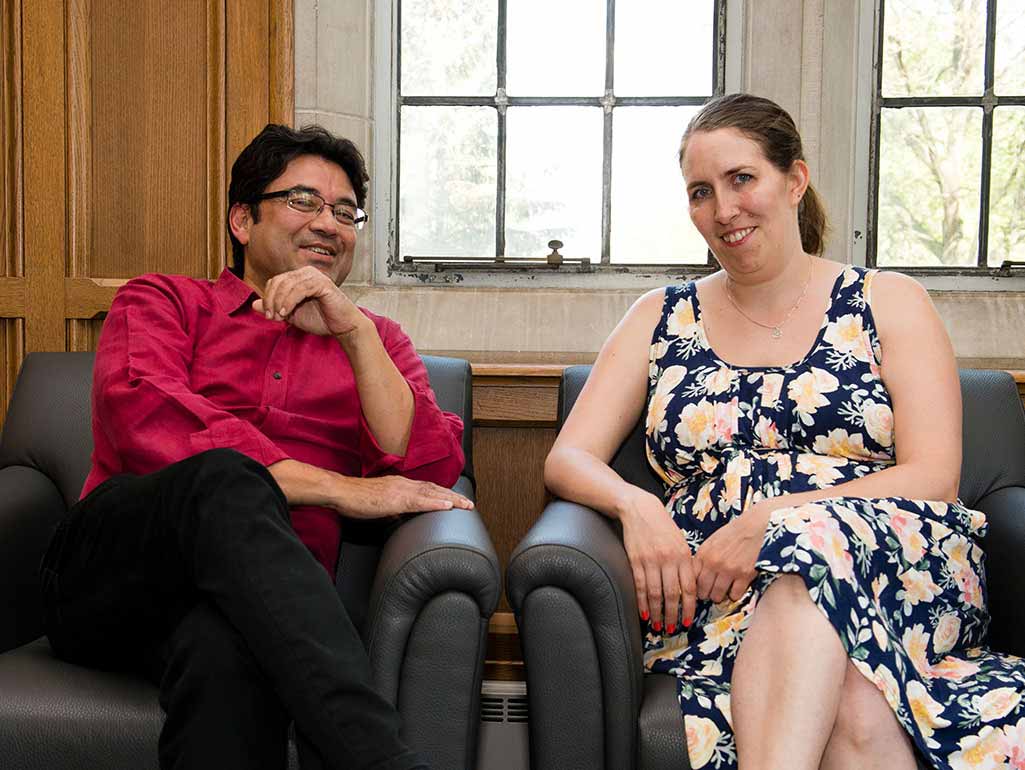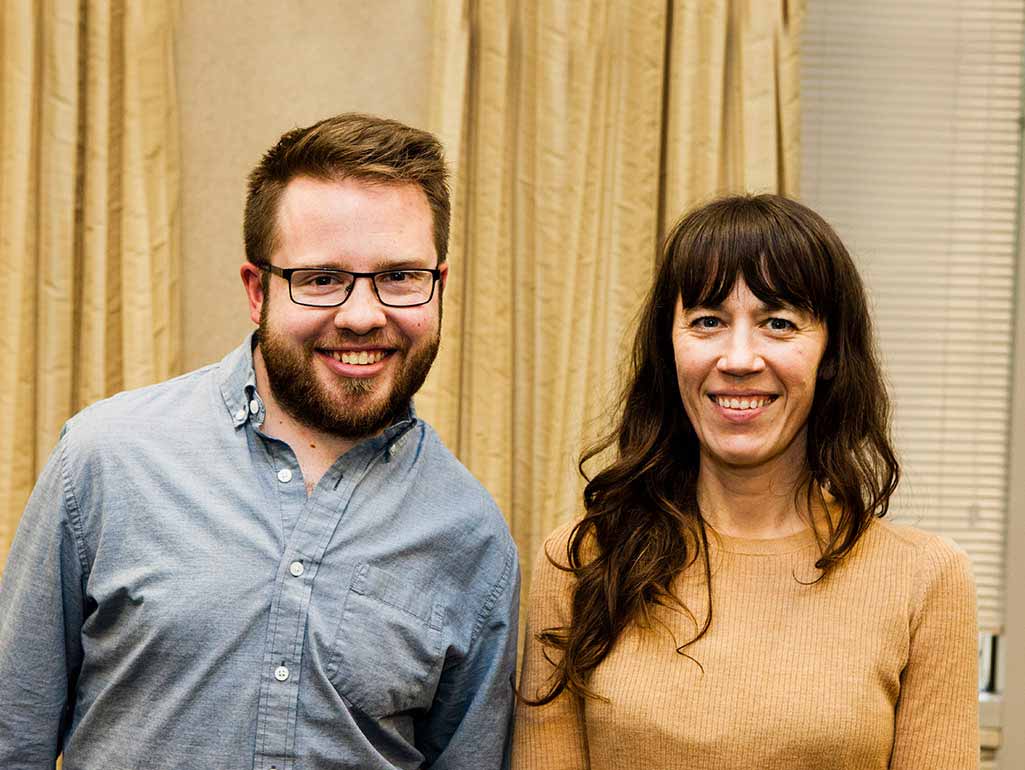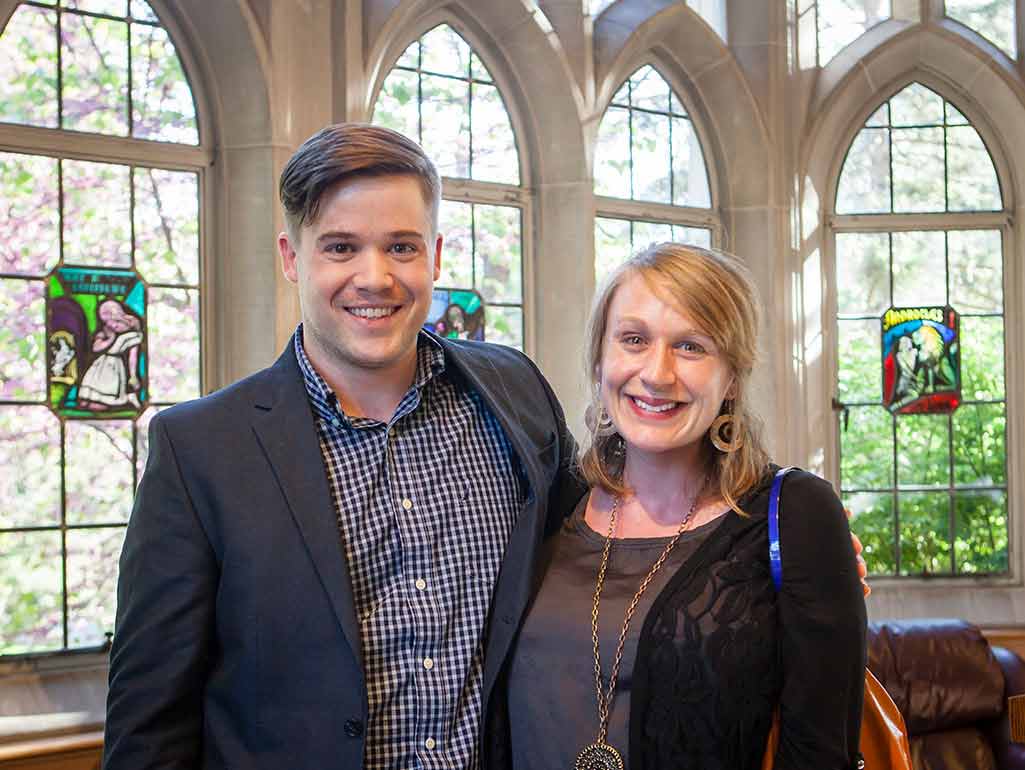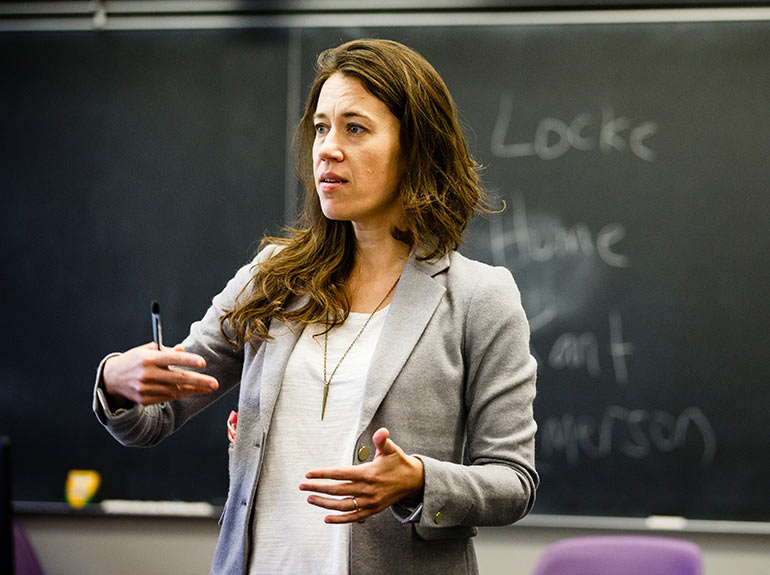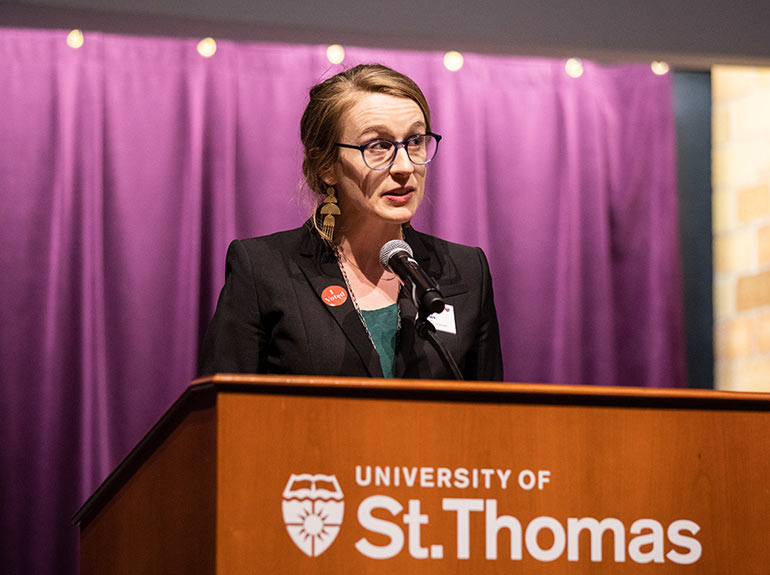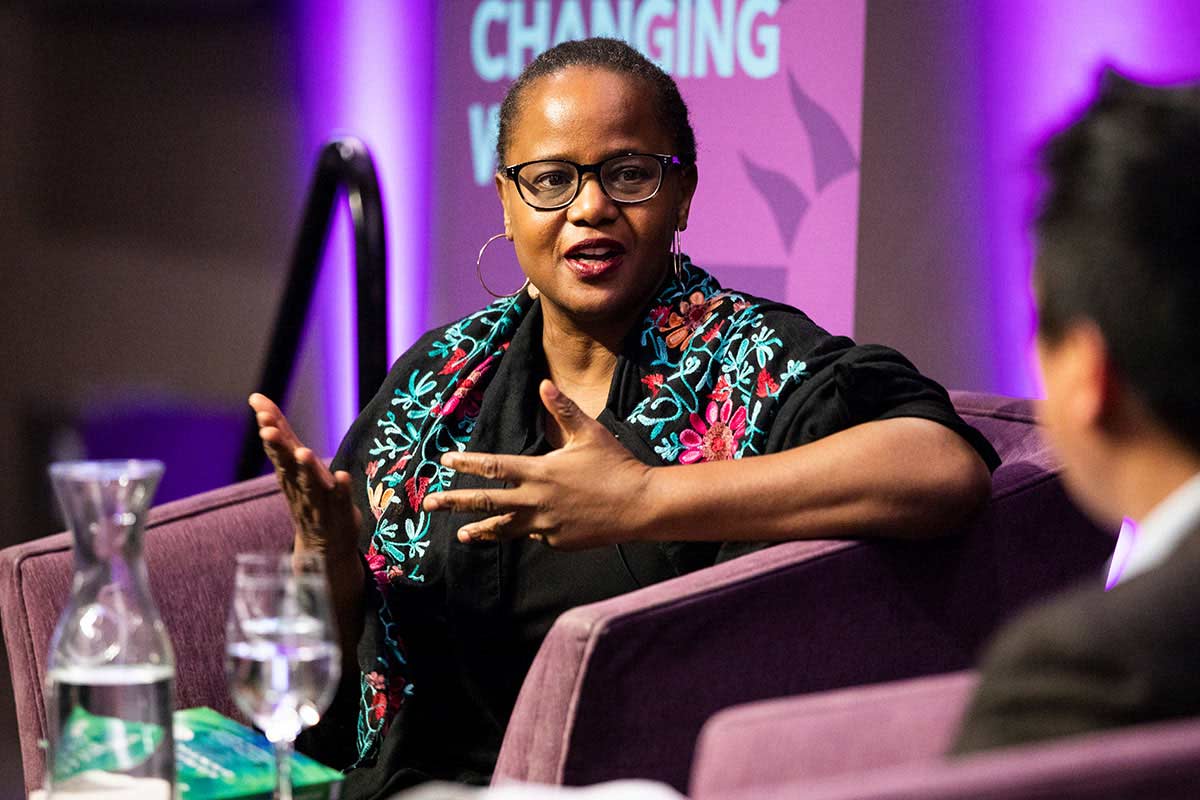About This Program
When you enroll in the University of St. Thomas Master of Arts in English program, you will join a dynamic intellectual group focused on intensive study of literature, writing, English pedagogy, professional writing, and new media.
While investigating a diverse array of texts, students develop professional skills in advanced writing, speaking, editing, research, and textual analysis. They also have opportunities to gain work experience in editing, teaching, and program administration.
Program Objectives
- Improve understanding of the power of language to shape ideas, individuals, values, and societies.
- Foster scholarly habits of critical thinking in speaking, reading, and writing.
- Promote an awareness of current issues and theoretical approaches in the discipline of literary and language studies.
- Cultivate an independent ability to read texts responsibly, comprehensively, and imaginatively.
- Develop skills in formulating sophisticated generalizations about writers, genres, and literary influences and periods.
- Refine the ability to communicate ideas in clear, engaging, and convincing prose.
- Offer an opportunity for sustained engagement with the ethical and aesthetic dimensions of literature, and of writing in general.
